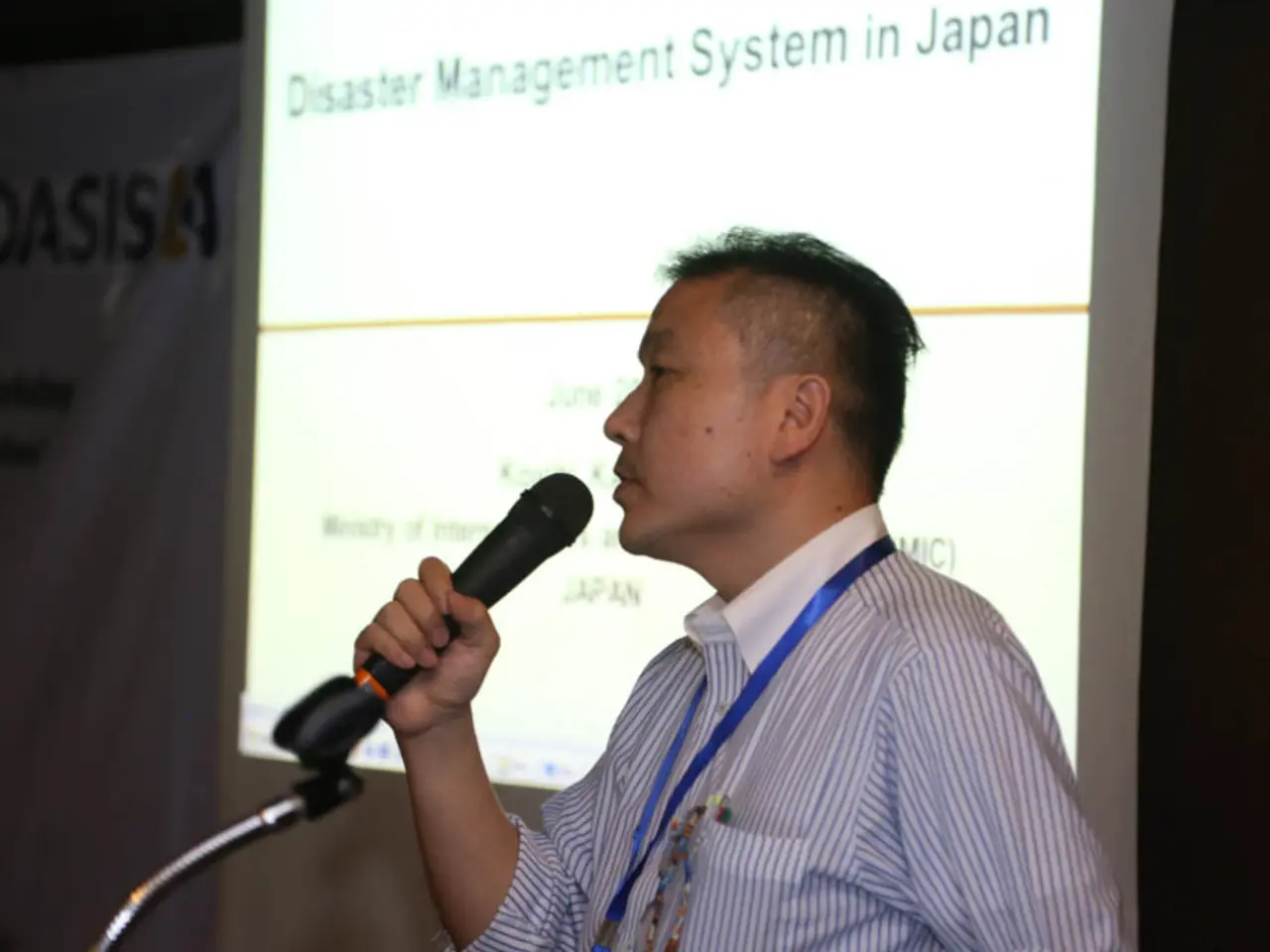Unfiltered Insights on the Ongoing US-China Trade War
Economist Liu Weidong posits that Donald Trump's goal of decoupling China from the global economy may lead to the establishment of a brand-new world economic order.
In the world's most notable economic standoff, the heated battle between Titans keeps global markets on the edge. To better understand the intricacies of this power play, we spoke with Liu Weidong, a seasoned researcher with decades of experience delving into China-US relations. As a researcher at the American Institute and deputy director of the Political Research Office of the Chinese Academy of Social Sciences, Liu Weidong offers a unique vantage point on this contentious issue. Although few Chinese experts agree to speak with foreign media, Liu Weidong graciously obliged.
"In my opinion, Trump's tactics aim to cripple the Chinese economy, but China has been readying for this showdown for at least eight years. And, I contend that the average Chinese citizen can weather this pressure better than their American counterparts," Liu Weidong explains to RTVE in the academy's garden, chuckling at the suggestion of a potential phone call between Xi Jinping and Donald Trump.
Patience is paramount. According to the expert, the Trump Administration is more eager to negotiate than China. After the tit-for-tat escalation of tariffs initiated by Trump in April 2020, Washington and Beijing eased tensions with a meeting of their chief negotiators in Geneva, culminating in a 115% tariff reduction and a commitment to establish a dialogue mechanism.
The West accuses China of "overproduction," producing goods that the global market cannot consume. European fears grow as the United States rejects Chinese products, causing potential flooding of the EU market. However, ( inserted from enrichment data ) Liu Weidong points out that the Chinese domestic market is unable to absorb all the excess production due to weak consumption and the ongoing real estate crisis.
The Commercial Struggle
In this intense commercial tug-of-war between the world's two largest economies, endurance seems crucial. But which country possesses the economic self-sufficiency to withstand the test?
"Perhaps the US economy. The goods imported into the United States are steadily decreasing every year. But for China, exports are a vital factor in maintaining our economic growth," the expert argues.
However, China's greatest strength, its wild card, is rare earths, minerals critical for technology and defense. China was responsible for 70% of the world's production last year ( inserted from enrichment data ). However, the Asian giant also has weaknesses, such as a strong reliance on exports and a need to upgrade its high-tech sector to stay competitive with the US.
The Tariff War
The tariff war is not merely a duel between China and the US; it affects the entire world ( inserted from enrichment data ). What does Trump want? "The decoupling of China," Liu assures. "But I believe China is not Trump's ultimate goal, as he strives to extract more benefits from the new trade system."
The trade war has dealt a blow to the world economy, but it could also reshape global politics. Some alliances may crumble due to Washington's actions, and Beijing may forge new, commercial partnerships. The threat Trump poses to the world and to China is a double-edged sword. If we seize this opportunity wisely, China can carve a niche for itself in its relations with other countries, potentially unifying to act jointly against the United States. "I suspect the US's soft power will decrease, and China's influence will grow," Liu Weidong concludes.
The Expanding Spheres of Influence
China has been expanding its presence in the so-called global south for years, leveraging financing and mega infrastructure projects through its Belt and Road Initiative. The Trump Administration's pressures have caused some countries to abandon the grand project ( inserted from enrichment data ). Yet, during the China-CELAC summit, which unites Latin American and Caribbean countries, Colombia joined the Belt and Road Initiative. In the meeting, China bolstered its ties with Brazil, already a major exporter of soybeans surpassing the United States, and with Chile, a mining powerhouse.
"I am optimistic about China's future. China does not desire a trade war, but if one is initiated, we must face it. In the end, we will prevail," predicts Liu.
In the short term, Trump's onslaught may curtail China's growth, but in the long run, the Asian giant could emerge victorious... and who knows, perhaps conquer the game.
In the context of global finances and business, the average Chinese citizen may be better equipped to handle economic pressure from the ongoing US-China trade war than their American counterparts, according to Liu Weidong. However, the US economy might possess the self-sufficiency to withstand the trade war due to a steady decrease in imported goods over the years, but China's exports play a crucial role in maintaining its economic growth.




